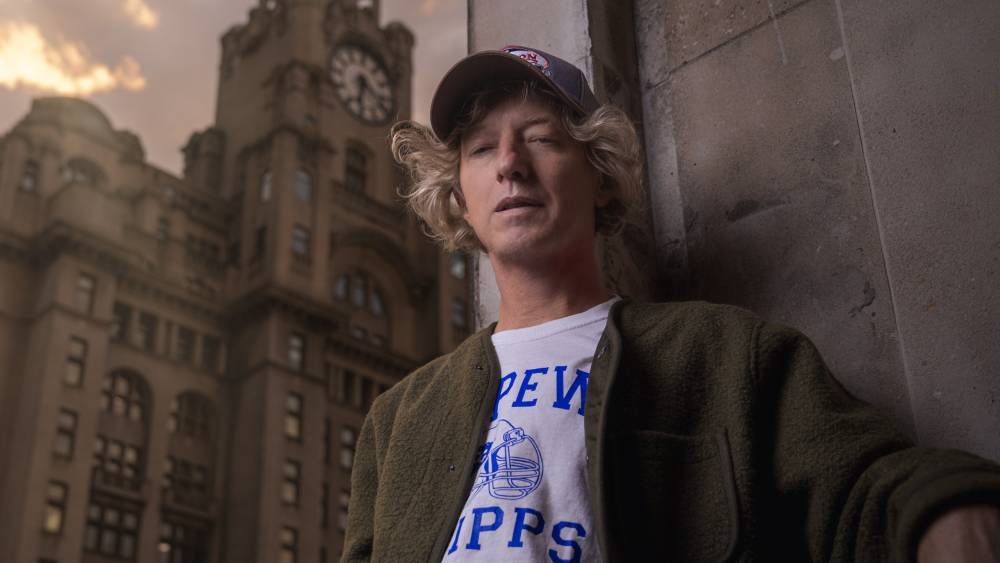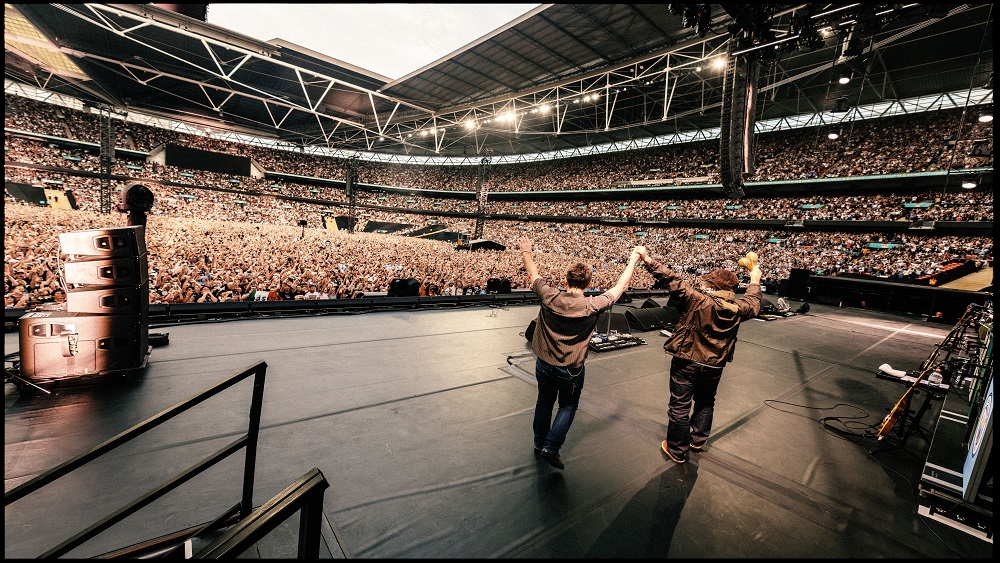‘BBC Radio 1 told us Insomnia “had no chorus or hook” and to basically go away,’ Faithless’ co-founder Sister Bliss tells M with a laugh. ‘When they were initially refusing to play it, we had no idea it was going to become this enduring club anthem.’
Thanks to its bold sonic foundations, along with the memorable vocals of Faithless' sadly departed frontman Maxi Jazz, Insomnia remains a certified dancefloor classic 30 years on from its original release. Going on to form part of their April 1996 debut album Reverence, the huge success of the single — which peaked at number three in the UK singles chart — ‘opened all the doors for us,’ Bliss says now.
‘It was the soundtrack to a moment in time,’ she adds. ‘It was part of this autonomous Faithless era where we were managing ourselves and operating on this tiny label out of a tiny house in Harlesden. If we’d been signed to a major, we never would have developed in the way we did. Instead, we could do what we wanted.’
'Insomnia was the soundtrack to a moment in time.'
Initially infatuated with the synth-pop of Kraftwerk and The Human League, Bliss became hypnotised by acid house as it roared into life in the late eighties. Her first exposure to house music came from visiting The Bell pub in King’s Cross, which recently earned a PRS for Music Heritage Award as the site of Bronski Beat’s first-ever gig.
‘I was on a pilgrimage to find this sound through pirate radio, mad raves and parties,’ Bliss reflects. ‘It was very eclectic: DJs would play Madonna 12-inch edits, then Maurice’s This is Acid. The music sounded like it had dropped from outer space and I was obsessed.’
Sparking her interest in songwriting and DJing, Bliss managed to secure studio time thanks to a chance meeting with The Source’s John Truelove. It was during this period in 1995 that she first met her fellow Faithless co-founders Rollo Armstrong and Maxi. ‘We were introduced to Maxi as this Buddhist rapper,' Bliss recalls. 'He sounded interesting, so we invited him to the studio.’
'We felt dance music could be so powerful.'
The first proper track the trio worked on became Salva Mea, Faithless’ debut single. Released in July 1995, it was written ‘about our frustration with the scene,’ explains Bliss: ‘We felt that dance music could be so powerful, and wanted to make something more nourishing than the handbag sounds that were popular. Maxi’s vocals helped us achieve this.’
After a brief deal with Island Records petered out, Faithless regained their rights and began releasing music on Rollo’s Cheeky Records, backed by Mel Medalie’s Champion Records, as they embarked on writing Reverence.
‘The album was the experience of us getting to know each other and was so eclectic, with elements of trip hop, ambient, funk and more,’ Bliss recalls. ‘We felt we needed to balance Salva Mea, so we wrote a song based on the same keyboard sounds but with a more accessible arrangement. It was really off the cuff, but it became Insomnia.’
Recorded in a converted garden shed studio that Rollo had rented out in Islington (‘It was a dark and filthy pit… Rollo used to chain-smoke and drink Lucozade, so these empty bottles were just full of fag butts. Still, it was the epicentre: we made all this amazing music there’), Maxi recorded his vocals for Insomnia at the nearby Swanyard Studios.
‘It had a door with this porthole so you could see the vocalist through it,’ Bliss explains about their set-up. ‘I remember Maxi smoking during his takes and these plumes of smoke coming up around him as he was rapping. He looked like some sort of mystic.’
As for Insomnia’s famed lyrics — particularly the ‘I can’t get no sleep’ line — Bliss notes a particular irony given who was actually behind the mic: ‘Maxi could sleep anywhere at the drop of a hat, so he had to dig deep to embody the lyrics. He drew on his experiences of dealing with the sleep deprivation caused by the pain of a tooth abscess.
‘The lyrics are also about pursuing a career in music and being dirt-poor. The lyric ‘when the light above my head went bam’? That’s about the electricity running out.’
Maxi’s lyrical depth set Faithless apart from many of the other charting dance acts of the time. Radio 1 DJ Pete Tong’s support, meanwhile, was 'crucial' in getting the track in the top 10 the following year.
‘Pete was getting so many requests from clubbers to hear it when he DJed, particularly after it became a big Ibiza hit that summer,' Bliss remembers. 'Champion Records' Mel also managed to get Insomnia re-released on the same day as Spice Girls’ Say You’ll Be There, so our single sat next to it in record shops.
‘Maxi’s lyrics helped Insomnia stand out. This wasn’t just disposable dance music for a Now compilation — although I’m sure it's ended up on lots of them!’
'I remember watching Maxi record his vocals, looking like some sort of mystic.'
As Insomnia’s success swelled, it was put to Faithless that they should consider performing live. Their first gig at Camden’s Jazz Café — later honoured with a PRS for Music Heritage Award in September 2012 — with a ‘ramshackle band’ was ‘legendary’, Bliss says now.
‘We could barely fit on the stage as there were 10 of us in the band!’ Bliss remembers. ‘Maxi was adamant that it had to have this organic feel when we played live, and it became our selling point.’
Faithless’ long-lasting popularity as a live outfit has played a huge part in sustaining them, as well as helping push dance music to a global audience. Along with the likes of The Chemical Brothers, Underworld and The Prodigy, the band were pivotal in taking electronic music out of the dance tents and on to the biggest stages.
‘We ended up playing these huge gigs with the likes of R.E.M., Lenny Kravitz, Tool, Limp Bizkit — the heaviest of the heavies. Our imposter syndrome was up to 11!’ Bliss says with a laugh. ‘We weren’t pop, nor did we go to the places popstars would go to. But we enjoyed it with some wry amusement. Traditionally, dance music was the shift away from pop’s egotism — none of us knew what we were aiming for.’
'Whenever we play live now, I keep thinking Maxi is about to walk on stage with us.'
Faithless released their eighth studio album Champion Sound back in September. A love letter to their past, it also features their last recordings with Maxi, who passed away in December 2022 following a long illness.
‘It’s so emotional. I keep thinking whenever we play that he’s about to walk on stage, it’s really mad,’ Bliss says. ‘I don’t think there are many frontpeople like that; the way he performed had this huge generosity around it. There is a generation of people who have felt what it was like to have this moment of unity and collective consciousness in what is a divided world.
‘Insomnia happened to be the track that captured people’s imaginations and brought them together.’
Faithless’ latest album 'Champion Sound' is out now. A special anniversary EP celebrating 30 years of ‘Insomnia’ will be released on Friday (28 November).





